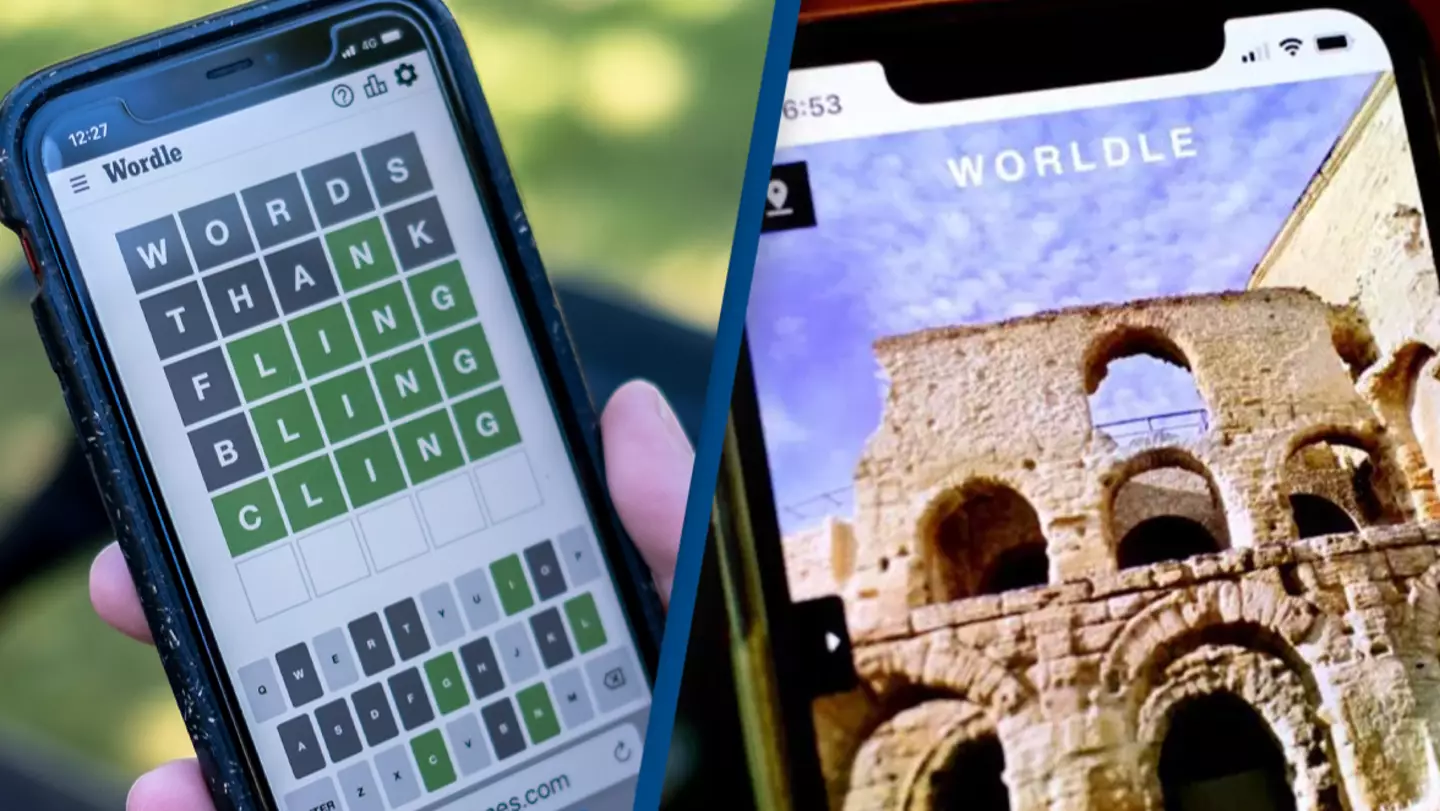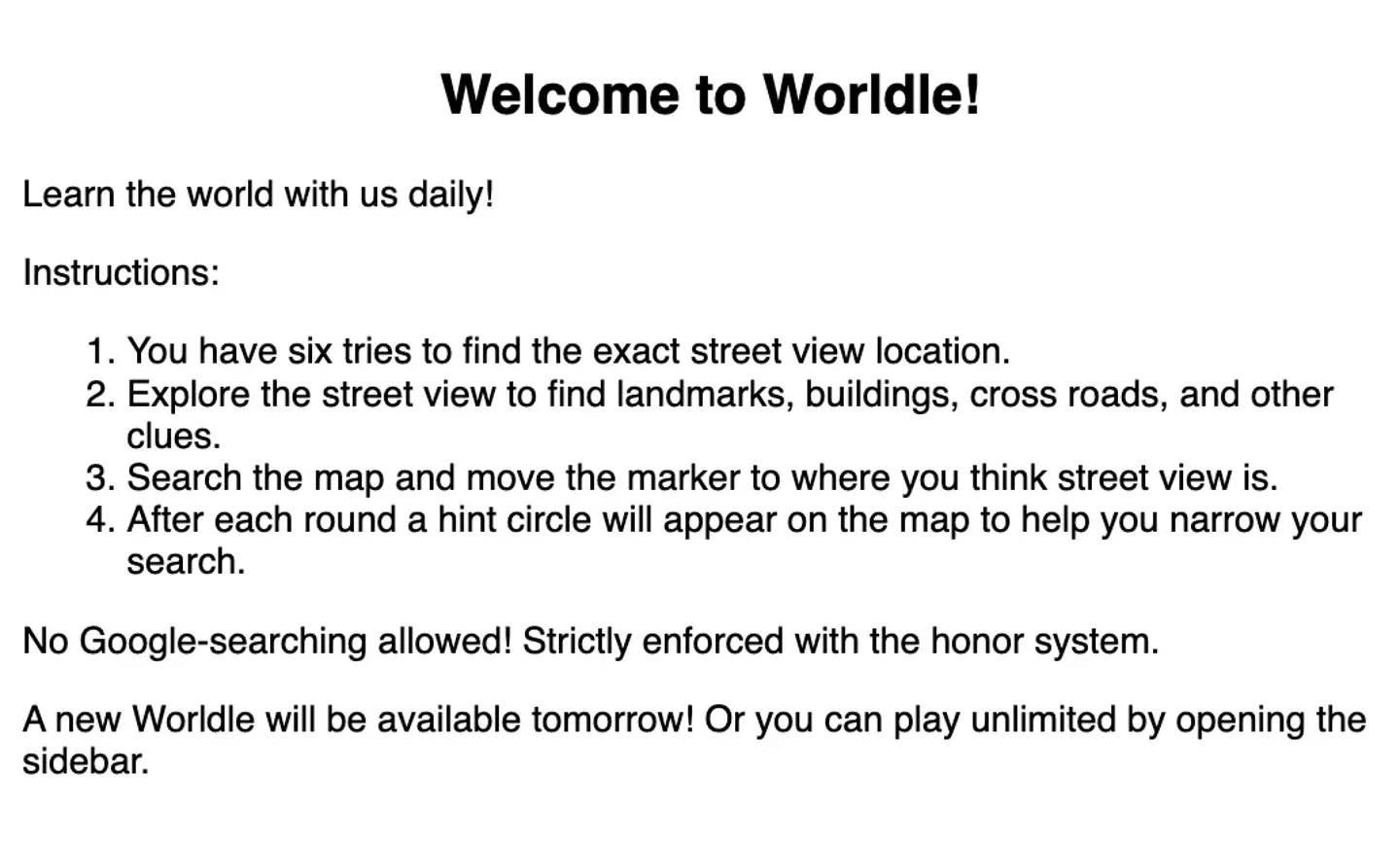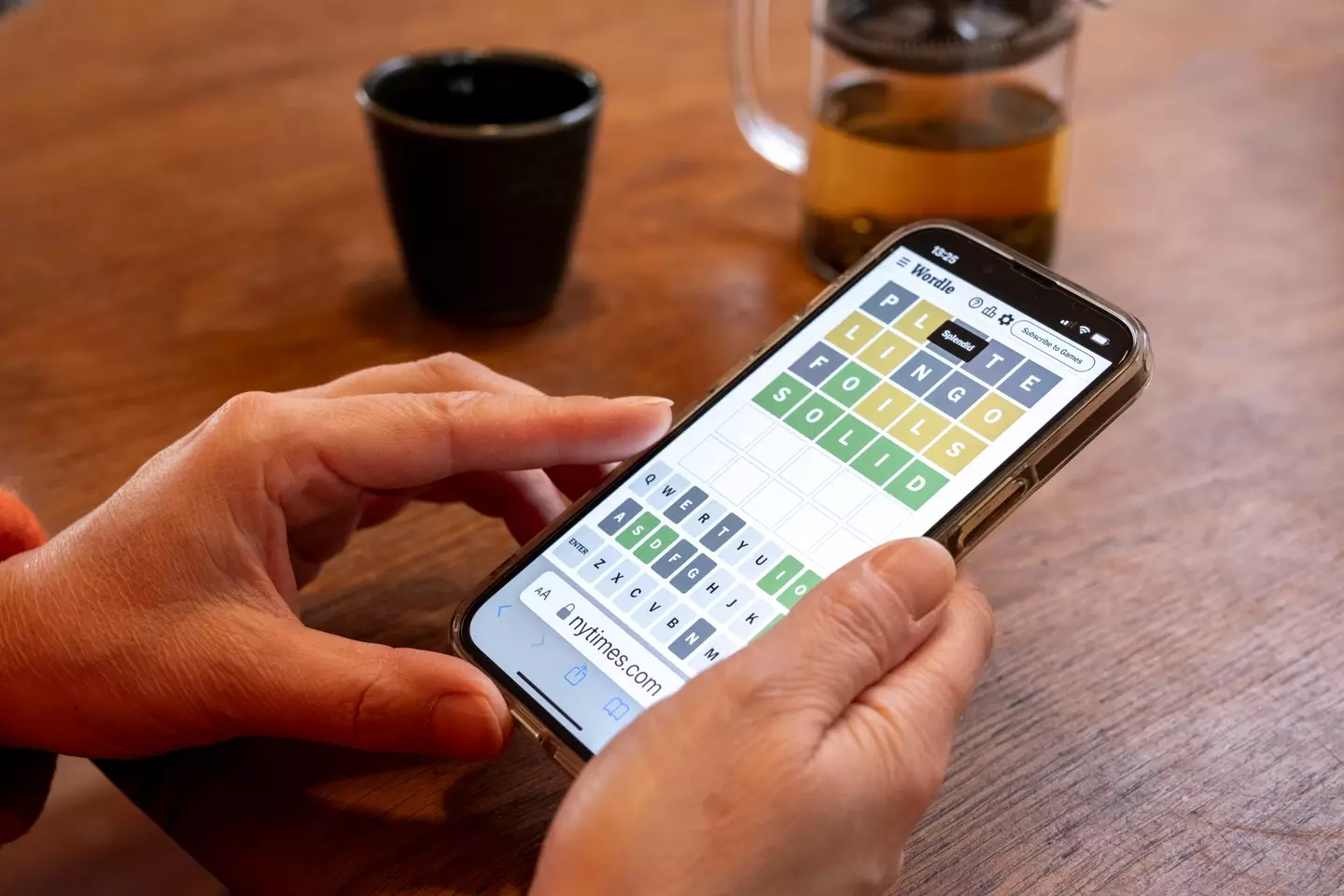
Anger. Claim. Legal. Fight. All of these could be starting choices for Wordle, but today I'm actually referring to a dispute between the beloved game and another program, Worldle.
To be clear, that's 'Worldle' with two 'Ls', as in the planet that we live on. However, the name could be confused at a glance with the popular word-guessing game invented by Josh Wardle - yes, that's really his last name - in 2021.

Wardle actually created the much-loved game for his girlfriend, but it took the world by storm as more people became aware of the simple but tricky challenge.
Advert
Starting with five blank spaces, Wordle players are tasked with trying to figure out the 'word of the day', narrowing down their options using orange and green indicators which show whether you've guessed the right letter.
The game was ultimately bought by The New York Times in 2022 for a seven-figure sum, but the publisher is now challenging Worldle - a different game - as it believes it is 'creating confusion' for players.
Worldle, with two Ls, has been created by software developer Kory McDonald and challenges players to try and identify images of streets from across the globe.

The New York Times has accused Worldle of trying to capitalize on the 'enormous goodwill' associated with Wordle, writing in a legal document that Worldle is 'nearly identical in appearance, sound, meaning, and imparts the same commercial impression to… Wordle'.
McDonald has hit back at the claims, telling the BBC Worldle is not available as an app and can only be played through a web browser.
It attracts around 100,000 people every month, in comparison to Wordle's millions, and contains ads, with an option to play ad-free for £10 per year.
Every evening, McDonald chooses a new street ready for the game the next day.
“It's pretty humbling to think that so many people play every month,” he said.
“I didn't expect it to have this sort of success at all.”
McDonald admitted he was 'kinda surprised' when he learned The Times was taking legal action against him.

“I'm just a one-man operation here," he said.
McDonald pointed out that there are many different games out there with names similar to Wordle, with Flaggle, Nerdle, and Heardle just a few of the examples.
The New York Times has previously said imitation was 'the best form of flattery', however it has also taken action against some games.
In March of this year, a Shetland dialect version of Wordle announced it would be shutting down following a copyright challenge.
Professor David Levine, a copyright expert at Elon University School of Law, told the BBC the similarities between the names Wordle and Worldle may cause issue for McDonald.
Levin noted there was only a one-letter difference between the two games, as well as 'other aspects of likely consumer confusion'.
"You've got the pronunciation," he continued. "I mean, I have to make an effort here to say Wordle versus Worldle."
McDonald still has hope for his game, as he commented: "Worst-case scenario, we'll change the name, but I think we'll be OK.”
Topics: Gaming, Wordle, Technology